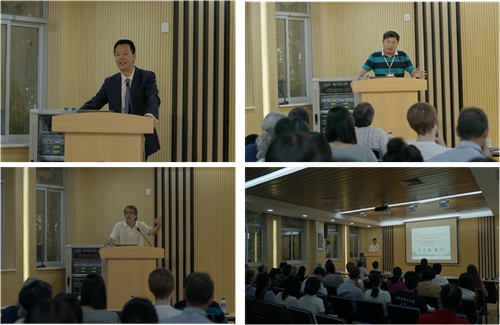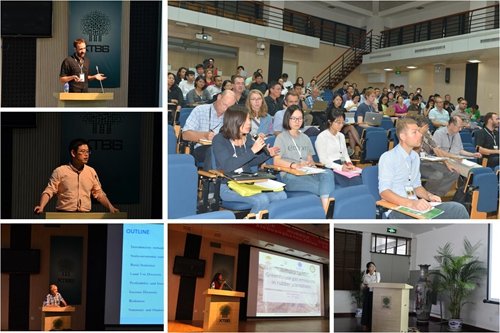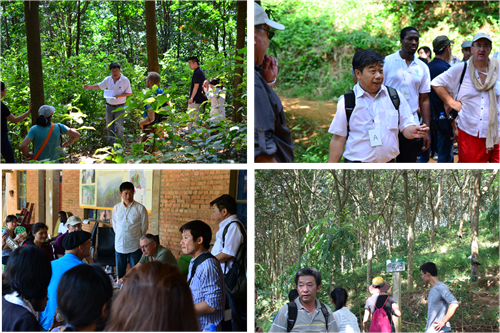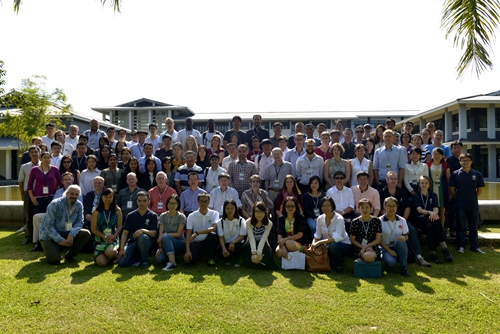On October 17, researchers, experts and local people from 16 countries gathered together at Xishuangbanna Tropical Botanical Garden (XTBG)for attending the four-day Sustainable Rubber Conference, whose goal is to share information in a multi-disciplinary, multi-stakeholder setting with a view to promoting environmentally friendly and socially responsible rubber cultivation. With presence of 120 people, the conference covered 8 keynote speeches, 46 session presentations, and 24 poster presentations. The conference provided a platform to facilitate communication among researchers, government agencies and industry groups concerned with the sustainability of rubber cultivation, seeking a sustainable future for rubber smallholders.
Large expansion of rubber cultivation has been realized through the conversion of natural forests to monoculture plantations, which caused loss of biodiversity, impaired provisioning, reduced soil health, increased erosion and increased greenhouse gas emissions.
Prof. Chen Jin, director of XTBG, addressed the opening of the conference. He said that smallholders today account for more than two thirds of rubber plantations in Asia. We need right policies to gain sustainable development. “With the right policies in place, local governments can help these farmers to grow rubber in an environmentally and socially responsible way” added Chen Jin.
“Rubber growing ought to provide sustainable incomes without destroying the environment or causing social problems” said Prof.Xu Jianchu of Kunming Institute of Botany (KIB), who’s also senior scientist and regional coordinator for East and Central Asia Region of World Agroforestry Centre (ICRAF).
Prof. Gerhard Langenberger, a botanist at the University of Hohenheim in Germany, and Mr. Liu Zhonghui, vice chairman of China Chamber of Commerce of Metals, Minerals & Chemicals Importers & Exporters (CCCMC) also delivered speeches at the opening ceremony.
Researchers and experts presented their understanding on land-use change and ecology of rubber plantations, rubber agroforestry, modeling of climate change impacts, socio-economics of rubber-dominated landscapes, etc. They then discussed possible future for the future of rubber smallholders.
The participants also made field tours to environment-friendly rubber plantations near XTBG, tour guided by Prof. Chen Jin, Yang Xiaodong, and Tang Jianwei respectively.
The conference established a platform to promote the development of socially responsible and environment-friendly rubber plantations across the industry.

Experts address the opening ceremony

Keynote speakers and participants

Field tour to rubber agroforestry trials

Participants pose a photo




